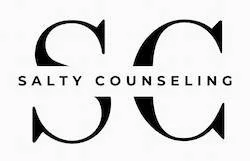New to Utah or Starting Over? How Therapy Can Help You Adjust
Moving to Salt Lake City—or anywhere new—can feel like stepping into an entirely different chapter of life. Whether you’ve relocated for work, relationships, school, or simply a fresh start, change can be both exciting and overwhelming.
I know this feeling firsthand. In my early 20s, I moved to Boston in search of a new sense of adventure. I loved the energy of a new city, but I was surprised at how quickly excitement gave way to homesickness, uncertainty, and the reality of starting from scratch. That experience taught me how important support and grounding can be during big transitions—and it’s one reason I’m so passionate about helping others adjust when life takes them somewhere new.
As a trauma-informed therapist in Salt Lake City, I work with many people who’ve landed here ready to “start over” but quickly discover that relocation brings its own emotional challenges. You’re not just unpacking boxes—you’re unpacking a whole mix of feelings, fears, and expectations.
In this post, we’ll explore why big moves can stir up so much stress, how to recognize normal adjustment struggles versus deeper emotional hurdles, and how therapy can help you feel grounded, confident, and at home again.
Why Moving Feels Harder Than You Expected
Even when you’ve planned and wanted this change, your nervous system still reads it as a big disruption. Here’s why it can feel so intense:
Loss of routine: Your familiar grocery store, coffee shop, and walking routes are gone. Even small daily habits change, which can feel disorienting.
Social disconnection: Making new friends as an adult is hard. You may miss your old support network more than you expected.
Culture shift: Utah’s lifestyle, culture, and pace might feel different from where you came from—sometimes in subtle and significant ways.
Hidden grief: You might feel guilty for missing your old life, even if you’re happy with the move.
These emotions are normal, but without support, they can snowball into loneliness, burnout, or anxiety.
Life Changes Can Stir Up Old Wounds
Here’s the thing: change—even good change—can activate old patterns and unresolved trauma.
For example:
If you’ve struggled with belonging before, you might feel that same “outsider” feeling more strongly now.
If you’ve experienced instability at some point in your life, moving might make your body feel on high alert again.
If you’ve ever been through relationship loss, you might notice old fears resurfacing as you try to build a new community.
This is why therapy during major transitions can be so powerful—it helps you separate the stress of the move from the echoes of past experiences.
How Therapy Helps You Adjust After a Move
Therapy offers both emotional support and practical tools for navigating your new reality. Here’s what it might look like:
Creating stability when life feels unsettled
We’ll work together to rebuild daily rhythms that ground you—routines that give your mind and body a sense of safety.Processing loss and change
It’s okay to grieve your old life while still being grateful for your new one. Therapy gives you space to honor both.Navigating social and cultural adjustments
We can explore ways to meet new people, set healthy boundaries, and find spaces where you feel accepted.Regulating your nervous system
Using somatic therapy and EMDR, I can help you release stored stress so you’re not living in a constant state of tension.Building a vision for your next chapter
Together, we’ll clarify what you want this new life to look like—beyond just “making it work.”
5 Ways to Feel Grounded After Moving to Utah
While therapy offers a deeper and more personalized approach, there are simple steps you can start right away to help your mind and body adjust:
Create a “mini routine” right away
Even small habits—like a morning coffee ritual or evening walk—can help you feel more settled while everything else is in flux.Explore your surroundings slowly
Pick one new place a week—a park, cafe, or local trail—to visit. This makes your new city feel less overwhelming and more familiar.Find connection early
Join a group or activity that matches your interests—book clubs, hiking groups, or community classes are a great way to meet people organically.Bring comfort from your old life
Keep a few familiar items visible in your home—photos, artwork, or a favorite blanket—so your space feels emotionally safe.Prioritize nervous system care
Simple practices like deep breathing, stretching, or mindfulness can help your body relax so your mind can adjust.
FAQ: Moving to Utah and Mental Health
How long does it take to feel settled after moving?
Everyone’s timeline is different, but many people start to feel more comfortable within 6–12 months—especially if they create routines and seek connection early.
Can therapy really help with relocation stress?
Yes. Therapy can help you process the emotions that come with big changes, address anxiety or loneliness, and give you tools to adjust more smoothly.
What if I’m still feeling unsettled years after moving?
That’s a sign it might not just be about the move. Therapy can help you explore deeper patterns or unresolved experiences that might be holding you back.
You Don’t Have to Adjust Alone
Starting over in Utah can feel both exciting and overwhelming—and it’s completely normal to have mixed emotions. You deserve a space where you can process the transition, heal any past wounds it stirs up, and start feeling truly at home in your new life.
If you’re ready to feel grounded, connected, and confident in this new chapter, I’m here to help.
Click below to schedule your free consultation, and let’s start building the life you envisioned when you decided to make this move.

